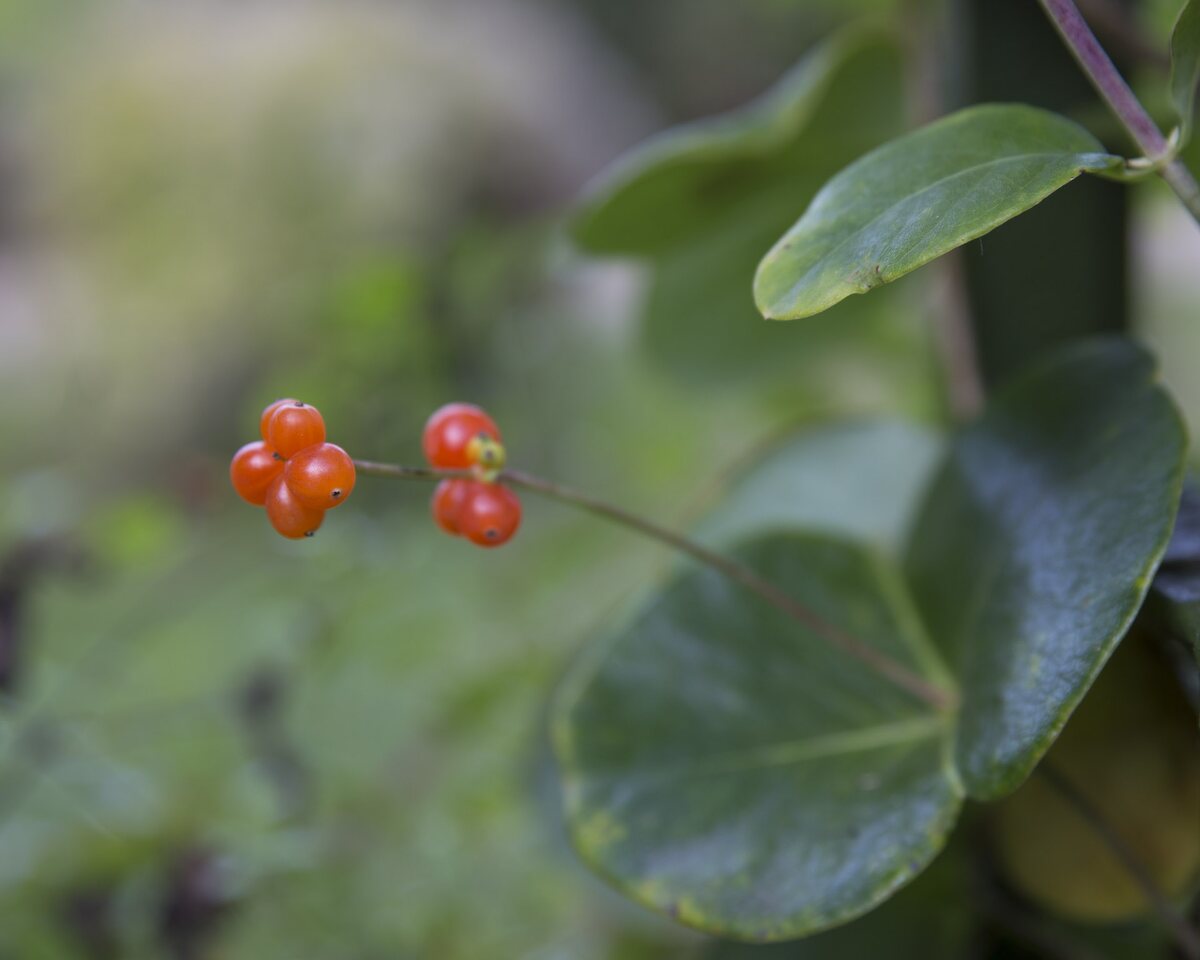
Lonicera sempervirens · visžalis sausmedis
- coral honeysuckle, trumpet honeysuckle, scarlet honeysuckle
- Trompeten-Geißblatt
- visžalis sausmedis
- trompetkaprifol, prydleddved
- vintergrön kaprifol
Native to the eastern United States. Lonicera sempervirens is best recognized by trumpet-shaped and coral to reddish flowers. The leaves and stems are waxy. It is a twining vine growing to 6 m or more through shrubs and young trees. The leaves are produced in opposite pairs, oval, up to 5 cm long and 4 cm broad; the leaves immediately below the flowers are perfoliate, joined at the base in a complete ring round the shoot. When born, their flowers are whorled on the end. They are present with red berries on them that are less than 1 cm width and length. The berries are inedible and grow from summer to fall. Their leaves are somewhat evergreen. The flowers are produced on new growth in clusters of several groups of three together, tubular, 5 cm long, with five small lobes opening at the tip to expose the stamens and stigma. The bark is green and fuzzy when younger but becomes a light brown as it ages. The older stems get more of a red-orange color.
‥
0 comments
Add a comment